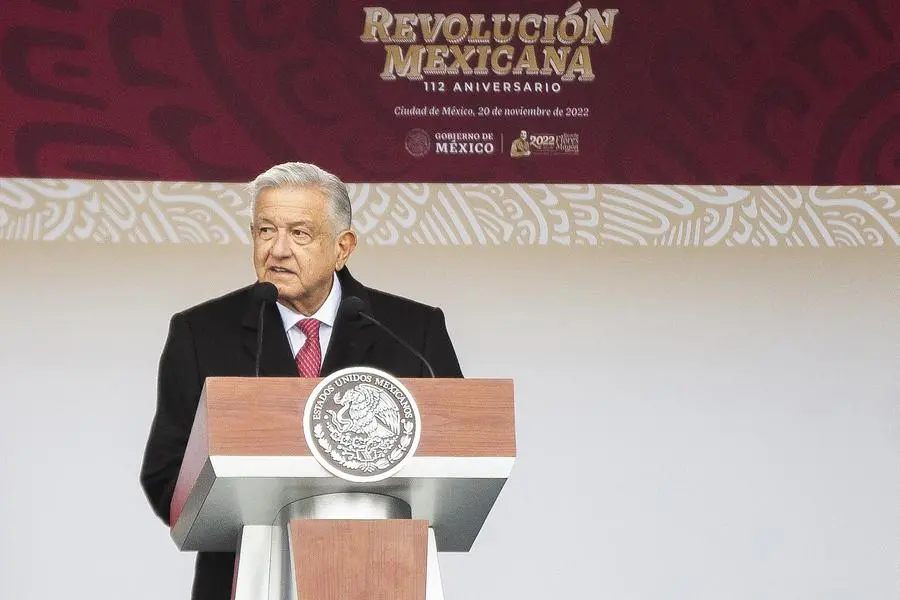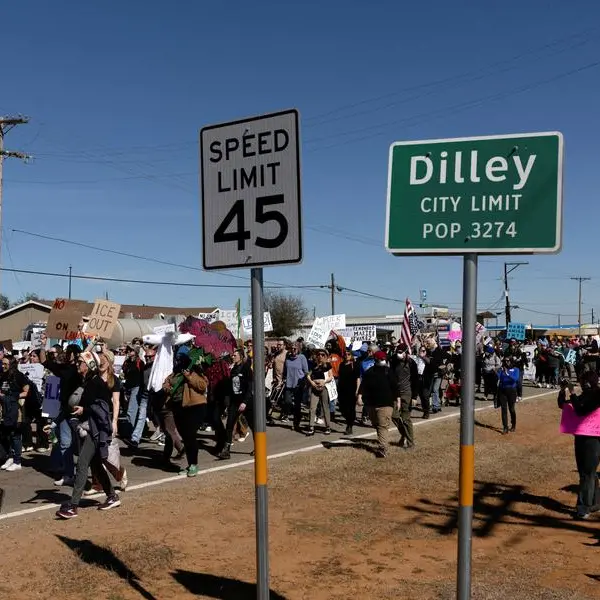PHOTO
When a dozen Latin American presidents and foreign ministers meet on Sunday in Mexico, they'll face a huge task: finding a solution to migration flows roiling two continents as people make their way to the United States.
This year alone, 1.7 million migrants arrived at the Mexican-US border. Immigration is becoming a huge political issue in both nations, which each have presidential elections next year.
September alone saw 60,000 migrants arrive in Mexico from Venezuela, along with 35,000 Guatemalans and 27,000 Hondurans, according to the Mexican government.
"It is very difficult to be able to manage these numbers if we do not have a policy where migration is not only handled between Mexico and the United States, but also from the northern part of South America to the United States," Mexican Foreign Minister Alicia Barcena said this week before congress.
"We need to agree" on migration policy "because we can do many things ourselves" within Latin America, said Mexican President Andres Manuel Lopez Obrador.
He added that Latin American countries, in a united front, should then "seek the cooperation of the US government."
In tow at the Chiapas conference will be the presidents of Colombia, Cuba, Ecuador, Guatemala, Honduras and Venezuela.
The Prime Minister of Haiti, Airel Henry, will also attend.
Barcena said that the summit aims to discourage migration via economic programs, address Washington's sanctions on Venezuela and Cuba and discuss "labor mobility pathways" to the United States.
The Mexican summit is a welcome beginning for "dialogue with the countries of the south," but might not accomplish much, said Dolores Paris Pombo, a migration researcher.
Mexico's objective, she told AFP, will be to relieve the migration pressure felt there by pursuing a broader, regional approach.
- US deals with Mexico, Venezuela -
Amid US economic sanctions and a political and economic crisis, some 7.1 million Venezuelans have fled the country in recent years, creating challenges for its South American neighbors.
Additionally, inconsistent US immigration policy -- swinging vastly from former president Donald Trump to current leader Joe Biden -- compound the problem in Latin America, said Paris Pombo.
"They give certain priorities to certain countries, but then abruptly close the door and change programs."
Biden has pursued several policies to stem the amount of undocumented immigrants coming to the US, including by reaching a deal with Venezuelan President Nicolas Maduro.
Some 130 Venezuelan migrants arrived back home Wednesday on a chartered plane from the United States on the first such deportation flight following an agreement between the two countries, despite the fact that Washington does not recognize Maduro's 2018 reelection.
The United States sends migrants back home, mainly to Central and South America, on about 70 flights every week, authorities said recently.
At the same time, the Biden administration also recently offered protection from deportation to 472,000 Venezuelans to allow them to obtain residence and work permits within 18 months -- although this would apply only to those who arrived before July 31 this year.
In September, Mexican and US authorities reached a deal for Mexico to deport some migrants expelled there from the United States.





















